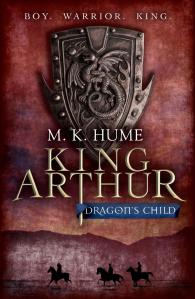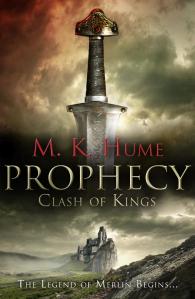I have been featuring fantastic female fantasy authors (see disclaimer) but this has morphed into interesting people in the speculative fiction world. Today I’ve invited the talented Felicity Pulman to drop by.
Watch out for the give-away question at the end of the interview.
Something’s gone wrong with my blog’s ability to embed videos. Here’s the link to Felciity’s great new promo for the Janna Mystery Series.
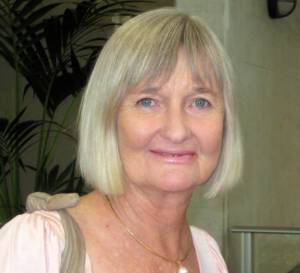 Q: We ran into each other at SheKilda, the women’s crime writers conference, but you write across a number of genres and ages. Your first novel (to appear under your own name) Ghost Boy was set in two timelines, the present and the past set, in part, around the small pox outbreak in 1881 when travellers were quarantined on arriving in Australia. There is a special Ghost Boy tour for school children at the Quarantine Station. It must be a real thrill to make a connection with children and bring the past to life like this. Have you been on the Ghost Boy tour and do you get a lot of emails from school children?
Q: We ran into each other at SheKilda, the women’s crime writers conference, but you write across a number of genres and ages. Your first novel (to appear under your own name) Ghost Boy was set in two timelines, the present and the past set, in part, around the small pox outbreak in 1881 when travellers were quarantined on arriving in Australia. There is a special Ghost Boy tour for school children at the Quarantine Station. It must be a real thrill to make a connection with children and bring the past to life like this. Have you been on the Ghost Boy tour and do you get a lot of emails from school children?
 A: Yes and yes to both questions. I found it very moving to watch my novel come to life up at the Quarantine Station. It’s a wonderful place to visit, very atmospheric. It gives students a real feel for what life was like back in those times and of course they’re always sure they’re going to see a ghost! (The guides themselves are quite sure the place is haunted!)
A: Yes and yes to both questions. I found it very moving to watch my novel come to life up at the Quarantine Station. It’s a wonderful place to visit, very atmospheric. It gives students a real feel for what life was like back in those times and of course they’re always sure they’re going to see a ghost! (The guides themselves are quite sure the place is haunted!)
Q: In your Shalott Trilogy, which was inspired by Tennyson’s The Lady of Shallot a group of five Australian teenagers try to rewrite the legend and save the Lady of Shalott. Have you always been fascinated by the King Arthur legends? Have you been to the UK to see Tintagel Castle?
 A: I wrote the Shalott trilogy because I was being bugged by the questions: why was the lady trapped in the tower, why was there a curse on her, plus the questions that followed on from that: what if it’s possible to go back in time and change history (or a legend); what if you’re also rewriting your destiny at the same time? I didn’t know much about anything at first so it was a HUGE learning curve. I began to acquire a library of Arthuriana old and new, plus books on magic, on life in medieval time, and so on. And I went on my first research trip, following the ‘Arthurian trail’ through England, Wales, Brittany and France. Tintagel was only one of the marvellous places I visited; other sites included Merlin’s ‘cave’ and Merlin’s ‘tomb’, Glastonbury and the Isle of Avalon, the ‘home’ of the Lady of the Lake, plus South Cadbury Castle, Caerleon and Winchester, all of which have been variously named as Arthur’s seat of power, sometimes called Camelot.
A: I wrote the Shalott trilogy because I was being bugged by the questions: why was the lady trapped in the tower, why was there a curse on her, plus the questions that followed on from that: what if it’s possible to go back in time and change history (or a legend); what if you’re also rewriting your destiny at the same time? I didn’t know much about anything at first so it was a HUGE learning curve. I began to acquire a library of Arthuriana old and new, plus books on magic, on life in medieval time, and so on. And I went on my first research trip, following the ‘Arthurian trail’ through England, Wales, Brittany and France. Tintagel was only one of the marvellous places I visited; other sites included Merlin’s ‘cave’ and Merlin’s ‘tomb’, Glastonbury and the Isle of Avalon, the ‘home’ of the Lady of the Lake, plus South Cadbury Castle, Caerleon and Winchester, all of which have been variously named as Arthur’s seat of power, sometimes called Camelot.
Q: Your current series The Janna Mysteries are set in England in the 1140s during the King Stephen/Queen Matilda civil war. This series contains a number of mysteries which the main character, Janna, has to solve. I think I’m seeing a theme here. You have a BA in Communication and an MA in Children’s Literature. Were you ever tempted to do further study in the area of history? (See Felicity’s Tips on Writing Historical Fiction).
 A: Actually I’m a late convert to history; I found it so boring when I was at school, probably because my teacher didn’t teach it as the continuing soap opera it really is! Those who marry – or murder for a crown, those who drive themselves to acts of great courage or bastardry for the sake of love, rivalry, power or wealth. Those idealists who dream of a brave new world, sometimes at a price too terrible to bear … the history I study is the history that informs my books. If I wasn’t so busy writing I’d love to go back to uni and immerse myself in the middle ages – or ancient Greece – or Egypt – or …? So difficult to know where to start!
A: Actually I’m a late convert to history; I found it so boring when I was at school, probably because my teacher didn’t teach it as the continuing soap opera it really is! Those who marry – or murder for a crown, those who drive themselves to acts of great courage or bastardry for the sake of love, rivalry, power or wealth. Those idealists who dream of a brave new world, sometimes at a price too terrible to bear … the history I study is the history that informs my books. If I wasn’t so busy writing I’d love to go back to uni and immerse myself in the middle ages – or ancient Greece – or Egypt – or …? So difficult to know where to start!
Q: You wrote two of the Guinevere Jones books, based on the hit TV series. Was it hard to immerse yourself in the series and the back-story, then write creatively about characters you didn’t invent?
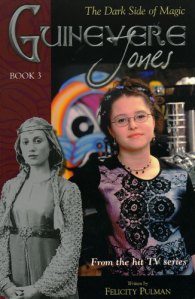 A: Sophie Masson and I wrote the four books based on the series, working from notes, scripts and recorded episodes that were sent to us. Writing the GJ books was a very different experience from anything else I’ve written. The books also had to be written very fast so there really wasn’t a great deal of time for angst over characters and back story, we pretty much had to work with what we were given. So there wasn’t a lot of scope for imaginative input; it was more a recording of other people’s lives. One of the things I need to do is walk the place I’m writing about, but this wasn’t possible as GJ was filmed on set in Melbourne (I live in Sydney) so I found that a real challenge – where do the characters go and what do they do once they go ‘off screen’?
A: Sophie Masson and I wrote the four books based on the series, working from notes, scripts and recorded episodes that were sent to us. Writing the GJ books was a very different experience from anything else I’ve written. The books also had to be written very fast so there really wasn’t a great deal of time for angst over characters and back story, we pretty much had to work with what we were given. So there wasn’t a lot of scope for imaginative input; it was more a recording of other people’s lives. One of the things I need to do is walk the place I’m writing about, but this wasn’t possible as GJ was filmed on set in Melbourne (I live in Sydney) so I found that a real challenge – where do the characters go and what do they do once they go ‘off screen’?
Q: In an interview on Need to Read This, when talking about your new book you say: ‘Most recently, I went to Norfolk Island. Hearts in Chains is a time-slip romance going back to the mid-19th century and the time of the brutal second penal settlement. I visited the museums, the ruins of the gaol, the houses along Military Road (now called Quality Row) and also Government House (and I am deeply grateful to the administrator and his wife for allowing me free access and even finding for me a hidey-hole for Alice to hide her diary!) I think it’s essential for me, as an author, to walk in my characters’ footsteps, to experience the landscape and identify what he/she might have seen – wildlife, trees, flowers, buildings (or their ruins), weather and the light, etc.’ (Felicity has a whole page dedicated to research on her web site. See here). I envy you the chance to do this. Where will you be going to next to research?
A: I loved writing the Shalott trilogy so much, and became so immersed in Arthurian legend that I’m thinking of revisiting that time and place, with hopefully the chance to explore the Arthurian trail once more.
 Q: You write books with a strong historical base. In the past females had many restrictions on what they could do from the inability to own property to the choice of who they married. Do you ever worry that young readers could have trouble identifying with a female character whose life choices are limited?
Q: You write books with a strong historical base. In the past females had many restrictions on what they could do from the inability to own property to the choice of who they married. Do you ever worry that young readers could have trouble identifying with a female character whose life choices are limited?
A: Society might change but human nature doesn’t, so my belief is that readers identify with and feel sympathy for Janna’s predicament, left alone in a hostile world with only her skills and her courage to save her; her life constantly under threat from everything from wolves and wild boar in the forest to an assassin on a mission to silence her – quite apart from having to find such basic necessities as food and shelter to keep herself alive. And then there are the three young men in her life – who will she choose? Readers are certainly VERY interested in that question!
Q: I’ve been interviewing quite a few authors and discovered many of them combine similar genres, mystery, fantasy and history. Why do you think these genres blend so well?
 A: Good question! It’s not something I’ve considered before, but I think in my case I enjoy reading and writing all these different genres, and if you can combine them, so much the better! I particularly enjoy time-slip stories, combining history with fantasy although of course they can also encompass the future (like my favourite author Connie Willis, for example.) Plus a mystery to solve or some sort of quest to fulfil is usually at the heart of every story, especially a fantasy.
A: Good question! It’s not something I’ve considered before, but I think in my case I enjoy reading and writing all these different genres, and if you can combine them, so much the better! I particularly enjoy time-slip stories, combining history with fantasy although of course they can also encompass the future (like my favourite author Connie Willis, for example.) Plus a mystery to solve or some sort of quest to fulfil is usually at the heart of every story, especially a fantasy.
Q: You go by the nick-name Flick. Did you have an annoying older brother who teased you and the name stuck? How did this come about?
A: I actually had an annoying older sister who called me ‘Fwiz’, which became the family nickname, while I was Fuzz (pronounced Fooz) to everyone else. My family still call me that but anyone else does so at their peril! I became Flick when I went to uni (in my late teens) and was christened thus by a girl in my res who subsequently became my best friend and who had known a Felicity/Flick at school. Infinitely better than Fwiz, so I don’t mind that the name has stuck. ‘Felicity’ is far too formal.
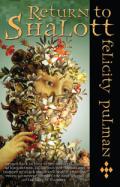 Q: I understand you are cooking up a new project to write about. Can you share it with us?
Q: I understand you are cooking up a new project to write about. Can you share it with us?
A: It’s still in the cooking stage but, as I said earlier, it will be centred on King Arthur and Camelot, exploring in more detail some of the issues I found so fascinating while writing the Shalott trilogy – but this novel will be for adults.
Q: I was prompted to start this series of interviews because there seems to be a perception in the US and the UK that fantasy is a bit of a boy’s club. Do you think there’s a difference in the way males and females write fantasy?
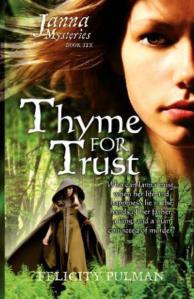 A: I don’t read ‘high fantasy’ at all, so this is not a question I can answer, except to say there do seem to be any number of wonderful women fantasy writers around so I’m surprised by your observation. Perhaps female fantasy writers need to establish a Sisters in Fantasy, the equivalent of the international Sisters in Crime movement?
A: I don’t read ‘high fantasy’ at all, so this is not a question I can answer, except to say there do seem to be any number of wonderful women fantasy writers around so I’m surprised by your observation. Perhaps female fantasy writers need to establish a Sisters in Fantasy, the equivalent of the international Sisters in Crime movement?
Q: Following on from that, does the gender of the writer change your expectations when you pick up their book?
A: Perhaps subliminally, not consciously. If I find an author I like I’ll keep going, in which case I know what to expect. With a new writer, I’ll go with the blurb and whether it sounds like an interesting story rather than defining it by gender.
Q: And here’s the fun question. If you could book a trip on a time machine, where and when would you go, and why?
A: Fun?? That’s a very difficult question with so many people and places to choose from! Backwards? Forwards? Decisions, decisions…and the temptation to try to change the course of history while you’re at it! I might opt for Jerusalem at the time of Christ. I always wondered how I’d have reacted to the Messiah if I’d been around then. I’m sure it would be a very interesting time and place to visit.
Give-away Question: Following on from the question above: if you could meet anyone past or present, who would it be … and why?
Follow Felicity on Facebook
Network with Felicity on Linked-in
Catch up with Felicity on GoodReads




